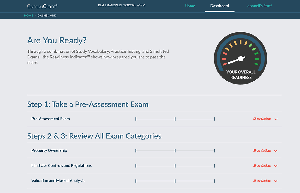When an individual first becomes certified to become a realty agent, they get a genuine estate sales representative's license (some states use the term "broker") from the state in which they will practice. To obtain a realty license, the prospect needs to take particular coursework (between 40 and 120 hours) and pass a state test on property law and practice. To work, salespersons should be associated with (and act under the authority of) a property broker. In Delaware, for instance, the licensing course requires the candidate to take 99 class hours in order to qualify to sit for the state and nationwide assessment. Most States need prospects for the general sales license to finish between 30 and 90 hours of class instruction. To get a broker's license a private needs in between 60 and 90 hours of official training and a specific quantity of experience selling genuine estate, usually 1 to 3 years. Some States waive the experience requirements for the broker's license for candidates who have a bachelor's degree in realty. State licenses typically must be renewed every 1 or 2 years; generally, no assessment is required. However, numerous States require continuing education for license renewals. Potential representatives and brokers should get in touch with the property licensing commission of the State in which they wish to work to confirm the specific licensing requirements (How long does it take to become a real estate agent).
Brokers try to find agents who have a pleasant character and a cool look. They need to be at least 18 years old. Maturity, excellent judgment, reliability, sincerity, and enthusiasm for the task are needed to attract potential clients in this highly competitive field. Agents must be well arranged, be information oriented, and have a good memory for names, deals with, and company particulars. An excellent knowledge of the city and its neighborhoods is a clear benefit. How to find a real estate agent.
Property brokers and sales agents frequently find new customers through referrals. Realty brokers and sales representatives typically should finish a variety of realty courses and pass a licensing exam. Genuine estate brokers and sales agents should complete some realty courses to be eligible for licensure. Although the majority of brokers and agents should take state-accredited prelicensing courses to become licensed, some states might waive this requirement if the prospect has taken college courses in realty. As the real estate market becomes more competitive and intricate, some companies are preferring to employ prospects with a college degree. Some neighborhood colleges, colleges, and universities offer courses in property.
Courses in finance, business administration, economics, and law likewise can be helpful. Brokers meaning to open their own business typically take company courses, such as marketing and accounting. In addition to offering prelicensing courses, lots of genuine estate associations have courses and professional advancement programs for both newbies and knowledgeable agents. These courses cover a variety of subjects, such as realty fundamentals, genuine estate law, and mortgage funding. All real estate brokers and sales representatives need to be accredited. Licensing requirements vary by state, but the majority of have comparable fundamental requirements: Prospects need to: be 18 years old finish a number of real estate courses pass a test Some states have additional requirements, such as passing a background check.
The Ultimate Guide To What Is Arv In Real Estate
Nevertheless, some states have reciprocity arrangements in that they will accept some requirements used to get a Great post to read license in another state (such as course hours). To get a broker's license, people typically require 1 to http://charlieyvsr448.bravesites.com/entries/general/some-known-incorrect-statements-about-how-long-does-it-take-to-get-your-real-estate-license 3 years of experience as a certified sales representative. They likewise must take additional formal training courses. In some states, a bachelor's degree may be replaced in location of some experience or training requirements. State licenses generally must be restored every 2 to 4 years. In the majority of states, brokers and representatives need to complete continuing education courses to restore their license. To validate exact licensing requirements, potential brokers and agents ought to contact the property licensing commission of the state in which they want to work.
Requirements differ by state, however many need 1 to 3 years of experience. Property sales representatives enhance their skills through practice and repetition. Training varies depending on the realty company. Some provide formal training, while others allow their representatives to go into the field immediately after obtaining their license. Insome states, agents need to be sponsored by a broker while they are working to get their timeshare maintenance fees don t pay license. Since of the sales environment and the intricacy of property deals, new agents might observe and work closely with more senior representatives. Larger realty business might provide formal classroom training for brand-new agents as a way to acquire understanding and experience, while others offer training to employees studying for their real estate licensing test.

Because most brokers are self-employed, they should handle every aspect of their company. This task consists of reaching out to potential clients, managing their finances, and advertising their services. Strong interpersonal skills are necessary genuine estate brokers and sales representatives, due to the fact that they spend much of their time engaging with customers and consumers. To bring in and keep customers, they must be pleasant, enthusiastic, and trustworthy. Genuine estate brokers and sales agents should have the ability to work individually, managing their own time and arranging, planning, and prioritizing their work. How to find a real estate agent. Genuine estate brokers and sales agents need to be able to rapidly (sometimes right away) address issues customers or prospective customers might have with a residential or commercial property.